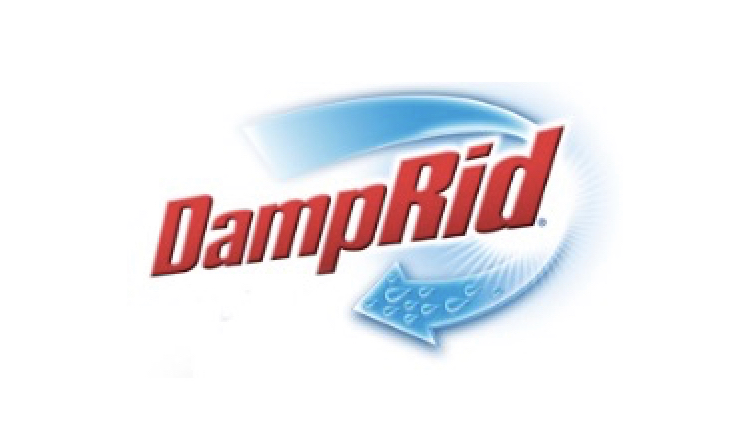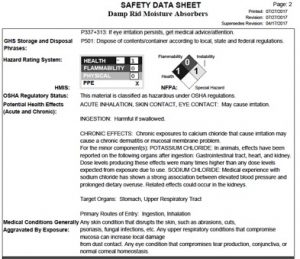
Why DampRid should NOT be used in your Vacant Home or Auto
I have increasingly been asked whether one should use DampRid as a means to control moisture in a vacant home or stored auto. While the manufacturer doesn’t specifically refer to using their product as a means of moisture control for a vacant home or stored auto, this author will discuss facts around moisture control and discuss the risks of employing DampRid in your vacant home/auto storage strategy.
Florida, during the hot humid months of summer, is a perfect breeding ground for mildew and mold. It is easy to understand why the ads for DampRid seem like a great way to add protection for your vacant home or stored auto you left behind. But is it really? Let’s start by considering how much water your central air conditioner pulls out of the air each day. A quick Google of the question pulls up this fact…

Wow! So, if your AC pulls 5-20 gallons of water from your vacant home each day, how effective can a bag or even a container of DampRid be? This fact alone leads one to believe that using DampRid in a home that is going to be vacant for months at a time is simply not going to be economically or practically effective.
Ok, but if I decide to use it anyway, what is the harm? If you have used this product in the past you know that the bags fill up with a liquid that is slimy and nasty. If that bag breaks or leaks while you’re away what happens and how do you clean it up? First let’s look at what happens if it’s in your home…
“What to do if I accidentally spill some of the collected liquid?
It is recommended to use a wet/dry vacuum or towel to remove as much of the liquid as you can. Continue to pour regular tap water onto the spill to dilute the concentration of the liquid. If you do not dilute or clean the spot, the spilled liquid will continue to absorb excess moisture and the spot may get larger.”
The quote above was from a FAQ document on the DampRid website. So, imagine you’re gone for several months. Your Home Watch schedule is weekly or twice a month. The spill happens after an inspection and it may be one or two weeks before it is discovered. The manufacturer is telling you the chemical used is going to continue to absorb moisture and spread, making what may be a small mess into a very large mess that requires significant work with water and a wet/dry vacuum to clean it up.
Here is what the manufacturer says will happen if the solution comes in contact with metal or leather…
“What does this mean: “Avoid metal & leather” on the container?
DampRid is a salt product. If the absorbed moisture comes into physical contact with metal for a long period of time it will corrode. If the absorbed liquid comes into physical contact with leather it will absorb the moisture in the leather leaving it hard and wrinkled”
Consider… If a bag spills in your stored auto and gets on your leather seats, you will likely have to replace them…. And if the spill gets on the metal it will corrode it. You don’t want any part of this scenario.
And lastly look at what the warnings are on the label…

In Summary… DampRid is simply ineffective for a vacant home and is no substitute for a properly running air conditioning system. It can cause messy, hard to clean up spills in the home and permanent damage to your stored auto.
I hope you have found this information to be helpful in planning your strategy for caring for your vacant home or auto. Please consider employing a Home Watch Professional that is accredited with a national organization like the National Home Watch Association who is bonded, insured and certified to perform a professional home watch inspection. For more information on this topic you may want to read the blog on this same subject at LINK. The information contained in this blog is solely the opinion of the author and does not reflect the official position of the National Home Watch Association.



